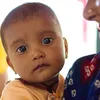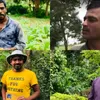How Axis Bank Foundation is empowering nearly 46k families in 5 Tamil Nadu villages
The Axis Bank Foundation’s focus on sustainable livelihood has given a new lease of life to five villages in Tamil Nadu. Through tank-based irrigation, desilting, renovation, and restoration, employment has increased, income has risen by over 58 percent, and farmers can now sow more crops.
The city of temples and poets, Madurai is also home to a strong agrarian district. As per a 2011 census by the Government of Tamil Nadu, the farming population of Madurai had a total of 4,01,867 agricultural labourers.
Axis Bank Foundation’s new phase project empowers villagers and farmers through tank irrigation to promote an agrarian society while empowering farmers with sustainable livelihood. What started in 2011 has, today, grown into a work of profound social impact for farmers in this region.
The early days
In the early days in 2011, Axis Bank Foundation (ABF), and their team decided to transform the lives of farmers in the Kongampatti, Vengaipatti, Kottampatti, Karungalakudi, and Mulaiyur villages of Madurai district in Tamil Nadu.
Since then, ABF, the CSR wing of Axis Bank has worked with 24,557 families, restoring 613 tanks and bringing 5,352 hectares of added land into cultivation. Third-party studies show that they have successfully managed to increase the income of farmers by 60 percent.
“In the present phase (on till March 2022), we have already connected with 45,800 families and restored 860 tanks in the area. The work is progressing well,” says Jacob Ninan, executive trustee and CEO of ABF.

ABF trustees and members in Kongampatti village, Madurai.
The ABF vision
The vision of the Axis Bank Foundation is to reach out to communities in need in some of the most deprived regions of India.
The trust was registered in 2006 to find ways to promote inclusive and equitable economic growth.
“It’s always about someone’s vision, so in 2006 when the foundation was created, our early thoughts were to not just help underprivileged people but also those who needed us the most. We were working on highway trauma, projects on rural and urban needs in Mumbai, on education, which was an emerging need, as well as on skill-building,” says Rajesh Dahiya, trustee and executive director of the corporate centre.
In the first phase of its mission, between 2011 and 2017, ABF worked with individuals across India to improve livelihood, economically and socially. In its new phase, from 2018-2025, ABF aspires to work with two million households to incorporate a large-scale social change.
It has currently worked and partnered with 30 like-minded NGOs, and impacted around 5.73 lakh beneficiaries across focus areas in its present phase. Its programmes are spread across 23 states and 156 districts of India.
The foundation places a significantly high focus on women and their role in its livelihood strategy, as a way to address gender balance and empowerment.

Women in the village
“In 2010-2011, at our brainstorming session, we thought about focussing on one or two aspects in greater detail - first it was livelihood, then rural livelihood, and finally 'sustainable livelihood'. We chose this term as we decided that it should not be a short-term solution but be relevant throughout the life of a human being. We also chose to focus on women empowerment, as women are the centre of livelihood, and we wanted them to feel empowered,” Rajesh recalls.
Providing sustainable livelihood to villagers
Irrigation is the backbone of rural livelihood and food security in Tamil Nadu. Tanks, reservoirs, and community canals were the main source of irrigation in the early sixties and seventies.
However, a decline of the management of these early systems led to an over-exploitation of groundwater, which ultimately affected the State's long-term water security. As a result, there was a decline in agricultural productivity and an increase in distressed migration.
To bridge this gap Axis Bank Foundation partnered with Madurai-based NGO DHAN (Development of Humane Action) Vayalagam Tank Foundation (DVTF) founded by MP Vasimalai to work towards providing a sustainable livelihood to individuals who depended on tank-based irrigation systems.

The primary focus was to rehabilitate water bodies, so that farmers could go back to life the way it was, while improving their agricultural output. The project works in the three sub-basins of the Pambar-Kottakaraiar river basin, and provides livelihood to the farmers of these villages.
“The work started with an intimate discussion between the heads of ABF and DHAN Foundation. When ideologies match and trust is built, the progression is natural. Agreeing on the concepts, a detailed proposal is built. This is followed up with multiple visits to the project locations. A baseline study is conducted wherever required. The final act would be to finalise the scale, reach, budget, approvals, and due diligence checks on DHAN, etc. This is followed up with recruitment of various project teams and their training. The project progress is monitored by way of a desk review (monthly/quarterly) and also regular field visits by ABF officials,” Jacob explains.

A striking impact
In association with DHAN Foundation, the ABF has made quite an impact in the five villages of Kongampatti, Vengaipatti, Kottampatti, Karungalakudi, and Mulaiyur.
The amount of water available and its accessibility has increased and so has farm production. Farmers have witnessed new development of crops such as vegetables, pulses, and cotton. Due to an improvement in agricultural yields, employment opportunities amongst villagers have also increased, and the income has risen by over 58 percent.
The percentage population earning below Rs 1,50,000 was 91.12 percent, which has decreased to 74.35 percent, while those earning above Rs 1,50,000 has increased from 8.88 percent to 25.65 percent.
The desilting, renovation, and restoration of tanks has provided farmers with fertile silt that is utilised to treat soil on farmlands, and has even increased water holding capacity. Additional capacity of tanks has enabled fisheries too.
“About two to three years ago, DVTF Foundation came into our village, and have helped us a lot. It has greatly benefitted around 1,000 households in our gram panchayat of which majority of them depend on farming activities. The quality of water has improved, and is readily available. Since they have changed our irrigation system, and improved the flow of water in our canals and reservoirs, we are planning to continue approaching them,” says Bahrudeen from Kongampatti Village.
There has also been a percentage change in crop yield - 22 percent for paddy, 5 percent for coconut, 9 percent for mango, 14 percent for groundnut, and 10 percent for cotton.
“For the past seven years, I have benefited from ABF and DHAN Foundations. They provided loans to improve my farming and lifestyle. When they first approached me, I was apprehensive, and unwilling to take a loan. However, after understanding how it would help, I took a Rs 10,000 loan, saw the positive effects, took another Rs 30,000, and now my Rs 50,000 loan is in progress. Paddy is growing well, and I have also bought oxen, as we don’t use tractors. My family has an improved quality of life,” says Sumathi, a farmer from Vengaipatti village.
The irrigation intensity increased most in Pudukottai district by 32.65 percent, and the least in S. Puthur (18.26 percent) and Kottampatti (21.38 percent) blocks.

Trustees receiving blessings.
Another huge impact is that women do not have to travel long distances to retrieve water.
“Availability of water improves family incomes. Where a farmer was able to sow only in one season, he is sowing twice a year now. With better availability of water, better cropping practices were introduced through training and exposure visits. Water is a common resource. If not governed properly through clear rules and regulations, it can create problems instead of solving them. This is reinforced in the Vayalagam meetings and (now) the community takes ownership leading to long-term sustainability. The farmer is linked to formal credit through local banks. This helps them stay away from high cost sources like moneylenders. Access to credit also builds their confidence,” says Jacob.
Working with villages had its early challenges, the foremost was building trust. It took time. A patient team, they did not force the mandate but allowed trust to build slowly. Another challenge was the difficulties and delays in getting local body permissions. “This was sorted out through repeated meetings and follow-ups with government officials. We involved community leaders,” says Jacob.
“In this phase, we will complete our work with 70,000 families by 2022 and take them on a path of sustainability. The Pambar basin is much larger, and it will be our intent to continue working in that area in collaboration with the government and other donors,” Jacob explains.
(Edited by Suruchi Kapur-Gomes)









